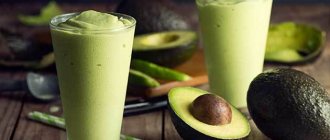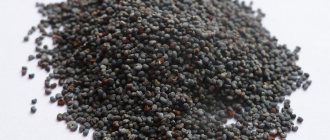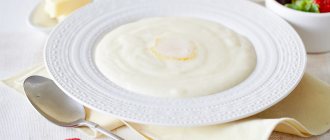How are they useful?
Doctors call shrimp a valuable product for expectant mothers, which contains a lot of protein and, on the contrary, very few carbohydrates and fats. They are low-calorie and digest very quickly, do not cause weight gain and help you overcome the habit of eating salty snacks, such as crackers or chips. Such seafood products are rich in:
- copper and iron,
due to which their use is beneficial for hematopoiesis and increases activity; - iodine
, very important for the functioning of the thyroid gland; - omega fats
, which participate in metabolic reactions and help prevent many diseases; - phosphorus
, which is important for teeth and bone tissue; - zinc,
which helps maintain healthy nails and beautiful skin; - potassium,
necessary for myocardial health; - selenium,
which can strengthen the immune system and protect against active oxygen; - astaxanthin,
which is a strong antioxidant.
Shrimp are especially useful for urban residents - after all, they suffer more from low oxygen levels and are susceptible to the negative influence of the industrial environment.
Are they allowed during pregnancy?
Doctors do not prohibit shrimp for pregnant women: if they eat them within reasonable limits, and listen to the reaction of their own body. On the contrary, according to doctors, in the early stages this delicacy will support the proper development of the embryo. The proteins, fatty acids and microelements contained in such seafood will have a beneficial effect on the development of the baby’s nervous and skeletal systems.
However, eating shrimp also has its limitations. First of all, there is an increased risk of allergies. If a woman enjoyed these seafood before pregnancy, and there were no problems, then she can safely include shrimp in her menu while in pregnancy. If, before conception, such “sea inhabitants” were not part of the diet, and the woman wanted them for the first time while carrying a baby, increased caution is necessary.
Many doctors, in general, do not recommend starting to get acquainted with shrimp and other seafood during pregnancy. However, if there is a strong desire, this is permissible. The first portion of seafood should be no more than 1-2 pieces. After eating shrimp, you should carefully observe whether there is a negative reaction to them. If at least one of the allergic symptoms appears (skin rash, difficulty breathing, swelling of the extremities, itchy skin, red eyes, runny nose), you should immediately consult a doctor and forget about this delicacy at least until the end of breastfeeding.
To reduce the risk of allergies in the baby, the expectant mother should not eat too many shrimp in one sitting, even if there was no negative reaction to them before pregnancy. Doctors recommend limiting yourself to a serving of 100-200 grams, eating it 1-2 times a week. In this case, it is important to boil the product well, since insufficient temperature treatment can lead to poisoning. It is not recommended to eat any seafood raw while expecting a baby.
By the way, if a woman has prepared shrimp for herself and suddenly changes her mind about eating them because of the unpleasant smell or taste, there is no need to force herself, despite all the benefits of this product. Eating shrimp forcibly will only worsen your appetite and have a bad effect on your mood.
. If you feel disgusted by them, you can easily replace shrimp with other seafood or sea fish.
Some doctors recommend eating seafood only in the first trimester, and avoiding such foods in the second or third. This is associated with an increased risk of allergies in the baby, which may appear soon after birth. Another factor limiting the consumption of shrimp is the level of cholesterol in a woman’s blood.
If it has been increased, then shrimp are not welcome on the menu of such pregnant women, because their composition includes this substance in quite large quantities.
Benefits and harms
Due to its composition, shrimp are very beneficial for health:
- This food product is a real storehouse of organic, easily digestible protein, which is involved in the processes of building muscle mass, the synthesis of collagen fibers, and the construction of cell membranes. The protein content in seafood allows it to improve the condition of the skin, prevent the appearance of the first wrinkles, and make hair and nails more beautiful and healthy;
- In addition, seafood contains a lot of omega-6-polyunsaturated fatty acids, which perfectly cleanse blood vessels, strengthen the heart muscle, helping to maintain its elasticity and ability to contract rhythmically without interruption for a long time. On the other hand, these substances reduce the manifestations of inflammation in the joints, promote the regeneration of cartilage tissue and reduce pain. Can you eat shrimp if you have gout? It is not only possible, but even necessary, since omega-3 significantly improves the condition of patients with musculoskeletal problems;
- Often people who care about their health are interested in the question “Are there a lot of cholesterol in shrimp?” Indeed, this substance is present in sea crustaceans in quite high concentrations. But it’s not so important how much cholesterol is in shrimp, what’s much more important is what kind of cholesterol? From the meat of sea crustaceans, our body receives a useful form of cholesterol, which takes part in the synthesis of bile acids and vitamin D, prevents atherosclerosis and cleanses the body of cellular fat;
- The shrimp shell contains another useful substance - chitosan. It helps bind and remove bad cholesterol from the body, cleanses the blood of toxins and helps in the fight against excess weight;
- Other active substances found in shrimp include an antioxidant called astaxanthin, which is several times more effective than tocopherol and retinol.
You will learn more about the benefits of shrimp from the video:
Do shrimp have calories? Surprisingly, they are considered dietary dishes, since their energy value is only 96 kcal per 100 g of product. Therefore, you should not even think about whether you can consume these seafood during your diet, but feel free to include them in your daily menu and lose weight for the benefit of your body.
Touching on the topic “Can you eat shrimp on a diet?”, it should be noted that they are not only a low-calorie product, but also rich in easily digestible protein, which quickly saturates the body and actively suppresses the feeling of hunger. Shrimp during the diet is an excellent option for those who, in parallel with burning fat, are building muscle mass. The nutritional value of sea crustaceans allows them not only to replace fatty meats in the diet, but also to completely replenish the missing amount of essential amino acids and other nutrients.
Benefits for the female body
What are the benefits of shrimp for women? Since sea crustaceans have virtually no fat, they are an ideal product for weight loss. When losing weight, eating shrimp allows the fair sex to quickly and effortlessly become the standard of slimness and beauty, without sacrificing their health, but, on the contrary, improving its condition. The benefit of shrimp for women also lies in their ability to improve the appearance of the skin, making it smoother and more radiant.
Can pregnant women have boiled shrimp?
This question often comes up on forums dedicated to healthy eating for expectant mothers. Doctors not only do not prohibit, but also strongly recommend that pregnant women eat a lot of seafood, in particular, sea crustaceans. Indeed, during early pregnancy, shrimp in a woman’s diet ensures normal growth and development of the fetal neural tube.
It is no secret that the body of an expectant mother must work for two. Therefore, very often he experiences a deficiency of vitamins and microelements, reacting to these changes with anemia and similar problems. Eating shrimp during pregnancy is an excellent way to improve the vitamin and mineral composition of a woman’s body, a valuable source of protein for building most tissues of the growing body, a storehouse of antioxidants that protect the placenta and prevent its premature aging.
Shrimp and the male body
What are the benefits of shrimp for men? The beneficial properties of shrimp for the male body are based on the increased concentrations of microelements such as zinc and selenium in the composition of sea crustaceans. It is these chemical elements that actively influence potency, increase sexual desire and prolong erection.
But what else are shrimp good for the body of the stronger sex? The consumption of these seafood has a positive effect on the quality of seminal fluid, and, accordingly, on the ability to reproduce. When studying the question of whether shrimp are good for men, it is important to remember that this food product contains many polyunsaturated fatty acids, which are directly involved in the synthesis of testosterone. It is safe to say that this type of seafood is extremely necessary for the male body, especially if it begins to lose its strength.
Still wondering if you can eat shrimp at night? Scientists say that eating sea crustaceans for dinner not only increases libido, but also allows a man to make the romantic continuation of the evening simply unforgettable.
How to cook?
Having taken frozen shrimp, they should be rinsed under water to remove any ice crust and dirt. Next, the product is lowered into salted water, which has boiled, after which it is cooked for about 7 minutes until the seafood begins to float on the surface and acquires a soft pink color. If you are using a cooked-frozen dish, then it is enough to dip the seafood in boiling water for 3-5 minutes, because they have already been cooked. It is important not to overcook the product - this will make it “rubbery”.
Boiled shrimp can be consumed without any additives, both hot and cold. But most often they are added to other dishes, for example, chopped vegetables or pasta, dietary soups and original snacks. Crustaceans go well with fresh cucumber and green salad, but will also be very tasty with fruit.
How to cook shrimp?
When preparing shrimp, their freshness is important, but their size does not affect their taste in any way. A high-quality shrimp will always have a uniform color, a curved tail and a shiny shell.
Cook the shrimp unpeeled, as the skin will allow the juice to remain in place. Pour water into the pan and bring it to a boil, the water should be salty. Add a few bay leaves for flavor. No more spices are needed, this will overpower the taste of the shrimp.
In terms of time, shrimp need to be cooked very quickly. As soon as the water boils again, immediately turn off the heat.
Cook the king and tiger prawns for 30 seconds; the overcooked meat will resemble rubber.
Immediately after removing the pan from the heat, plunge the shrimp into the ice water.
Cooking shrimp is not at all difficult; after boiling, you can eat them simply with sauce or make a salad with shrimp.
It is not advisable for pregnant women to eat ready-made seafood cocktails, since they often contain vinegar, spices, and chemical additives such as flavor enhancers.
Tags: pregnant, boiled, shrimp, can
About the author: admin4ik
« Previous entry
Purchase and storage
It is advisable to buy seafood in a store, carefully inspecting the product and preferring trusted manufacturers. Before purchasing, you need to make sure it is fresh by looking for the production date and expiration date on the packaging. When you pick up a package of frozen shrimp, make sure that they are not stuck together, which often happens in situations where the product is re-frozen.
It is preferable to buy goods in transparent packaging, which allows you to verify the quality of seafood.
If the shrimp have dark legs, then the product is “old”, and if they are covered with white spots, then most likely they are frozen. Marine inhabitants with a dark head are of low quality, and if there are yellowish tubercles or spots, it is advised not to use them.
Expectant mothers should not buy shrimp at the market. Such goods, as a rule, lack the necessary certificates and certificates, and their storage conditions are questionable. In addition, when purchasing at the market, a pregnant woman cannot be sure that tender shrimp meat is free of mercury and other heavy metals. Such substances are extremely dangerous for the fetus, especially for its nervous system. For this reason, purchasing shrimp in a store is much safer, because they have been tested in accordance with GOST standards.
If a woman is not going to boil seafood right away or has bought a lot of shrimp, then they should be transported home from the store as soon as possible and put in the freezer before the “dwellers of the sea” are defrosted. They can be stored at sub-zero temperatures no longer than specified by the manufacturer. But it is generally not recommended to store cooked shrimp.
They should be eaten immediately after cooking, because this product spoils very quickly.
For prepared shrimp products sold in stores, it is important to read the label carefully.
Many of them contain a lot of spices and vinegar, added preservatives and other harmful substances.
They can provoke heartburn and other unpleasant phenomena, so if possible, expectant mothers should avoid canned seafood.
To find out whether pregnant women can eat shrimp, watch the following video.
There is a lot of controversy about the benefits and harms of shrimp during pregnancy. Some perceive the seafood delicacy as a strict taboo, while others, on the contrary, strive to introduce it into the diet as often as possible.
In fact, doctors do not prohibit seafood for expectant mothers, but they emphasize the purchase of quality products, proper heat treatment and moderate portions.
Important!
For your own safety, buy seafood only from reputable stores.
Avoid products with opened or damaged packaging. When choosing frozen shrimp, give preference to those specimens that are as deep as possible in the refrigerator. Doctors advise including shrimp in the diet even for those who have not tried them before. But it is important to start with minimal portions and carefully monitor your body’s reaction.
Seafood should not be overused: to support her body and provide adequate nutrition to the fetus, the expectant mother is allowed to eat 100–150 g of seafood delicacy 2–3 times a week. If there is no particular addiction to such food, then there is no need to force yourself to do so. The benefits of delicious dishes based on the inhabitants of the sea will be if the following conditions are met:
- purchase a high-quality and fresh product, avoiding markets and spontaneous trade (be sure to ask sellers about the availability of quality certificates and the expiration dates of the goods being sold);
- the ingredient must undergo sufficient heat treatment;
- it is correct to combine boiled shrimp with other components of dishes, since when they are consumed in combination with excessive amounts of vinegar, spices, as well as in combination with tangerine juice, milkshakes, tea and milk, pregnant women may experience heartburn, food indigestion or serious poisoning, gastritis and allergic reaction.
Did you know?
In Hinduism, the use of crustaceans as food is strictly prohibited
.
After 22 weeks of intrauterine development of the fetus, such delicacies will need to be completely abandoned. The fact is that by this period the fetus will have already formed its own immune system, so foods that can provoke an allergic reaction are extremely undesirable in the mother’s diet.
Benefit
According to international nutrition institutes, seafood contains almost no fat, but is superior in the amount of proteins and minerals to poultry and mammals. For the embryo and the expectant mother, this nuance is very important, since proteins are cellular building materials.
Did you know?
The largest species of crustacean is the tiger shrimp.
Its body can reach 36 cm in length and weighs 650 g. Due to its rich chemical composition and beneficial properties, doctors recommend consuming shrimp for pregnant women.
In particular, their benefits are:
- supplying the body of the mother and the developing embryo with useful nutrients;
- promoting the correct formation of the skeletal and nervous systems of the unborn baby;
- easy digestibility;
- iodine saturation, which is important for preventing illnesses caused by a deficiency of this microelement;
- improving the blood formula;
- stimulation of the full functioning of all internal organs in conditions of environmental pollution;
- control of mineral balance;
- providing the expectant mother with a charge of vital energy;
- normalization of metabolic processes;
- improving the condition of hair, nails and skin.
Harm and precautions
Excessive passion for this delicacy and choosing a low-quality product can lead to serious health problems.
Can pregnant women eat?
During pregnancy, you can eat shrimp in the early stages and in the second trimester, but with caution, no more than 3 times a week, 100-150 grams.
However, if you have never eaten these seafood before pregnancy, it is better not to experiment, as an allergic reaction may occur, the consequences of which can be very dire.
You should completely give up shrimp in the third trimester. The fact is that during this period of time the baby develops his own immune system and any unusual foods that are consumed infrequently can cause allergies.
If you decide to treat yourself to this seafood, you should pay careful attention to the choice of product and its preparation:
- You should not buy shrimp in spontaneous markets or in dubious shops - any conscientious seller must show certificates for the goods upon the buyer’s first request.
- It is best to buy shrimp in transparent vacuum packaging, indicating expiration dates, composition and other data confirming the quality of the product.
- The normal color of shrimp is pink to orange. If you see a dark head, dry shell, black legs, or strange yellow spots and tubercles, put this product aside.
- It is better not to buy marinated, canned shrimp or those included in seafood cocktails. Such products contain various chemical additives and flavor enhancers.
- The best option for eating shrimp during pregnancy is boiled. In this case, the average cooking time is about seven minutes after boiling, during which time the shrimp should acquire a soft pink hue.
- It is better to consume the finished product immediately after preparation, rather than storing it in the refrigerator for several days.
- Also, do not overuse spices when preparing crustaceans - the maximum you can add is salt. Vinegar and hot spices are especially dangerous during pregnancy.
- Shrimp are ideally combined with vegetable salads, cucumbers, apples and other vegetables and fruits.
Poor-quality, expired or improperly prepared shrimp can cause poisoning or cause problems with the gastrointestinal tract. However, if you follow all the rules for choosing and preparing shrimp, they will only benefit the body of the mother and baby.
Cooking secrets
In the culinary world, there are many recipes in which seafood crustaceans are boiled, stewed, baked and fried. However, boiled low-fat food with the maximum amount of nutrients is recommended for pregnant women.
Important!
According to the University of Oregon, frequent consumption of seafood can cause chronic poisoning and accumulation of toxins.
Researchers associate this fact with global warming and an increase in the amount of domoic acid in ocean waters. It is characteristic that this poison does not lose its activity even after heat treatment. In order for the delicacy to provide the body with vital energy and satisfy gastronomic needs, experienced housewives advise:
- Give preference to small-sized shrimp caught in the northern seas. Usually on the packaging they are calibrated as follows: 50/70, 70/90, 90/120. If there are no numbers on the packaging, it means there is a mismatch inside.
- Products in transparent bags are preferable so that you can see the appearance of the shrimp. They should be covered with a thin transparent ice layer, which indicates a one-time freezing of the seafood immediately after catching. Thick snow or ice cover is a sign of re-freezing and poor quality goods.
- Before cooking, crustaceans are thawed and cleaned. For this purpose, you need to separate the neck from the body and remove the shell from it. It is also important to remove part of the shrimp's digestive tract, which is the hollow vein. When pressed, a dark substance is released from it, which spoils the appearance and taste of the dish. To successfully remove this thread-like part, you will need a sharp kitchen knife or a special device that resembles an awl. The tool is used to cut the outer side of the tail zone, after which the edges are carefully pulled apart and the intestine is pulled out.
- Cook the cleaned and washed product in lightly salted water, keeping it on the fire for up to 7-10 minutes after boiling. Please note that seafood will be done when its outer color changes to orange-pink and the insides become pure white and opaque. Remember that overcooking will turn the delicacy to rubber. After cooking, drain the shrimp using a colander.
- If you purchased a finished product, it can be used as a snack. However, experts do not advise expectant mothers to experiment with such tastings - it is better to cook sea crustaceans on their own.
- Women in an interesting position can use shrimp to prepare soups, salads, tempura, appetizers, and side dishes.
- If you have to deal with a boiled-frozen ingredient, just dip it in boiling water for 3 minutes. Cooking time is reduced due to previous cooking of the shrimp.
Now you know what to watch out for when choosing and eating shrimp and how to get the maximum benefit from them for your health and the health of your unborn baby.
Important!
When purchasing frozen shrimp, pay attention to their appearance and the contents of the package.
The snow present inside indicates that the product has been defrosted and re-frozen several times; the faded or yellow color of shrimp indicates freezing and long-term storage of the goods, and the straight tails of marine life indicate the freezing of dead specimens; black spots on the body and head are a sign of disease. Do not forget that this exotic delicacy, in addition to vital minerals and vitamins, can be filled with heavy metals and toxins.
Therefore, it is important to know when to stop and choose only high-quality crustaceans.
The gastronomic preferences of the expectant mother should be agreed with the doctor, who will determine whether shrimp can be eaten during pregnancy. Food rich in natural fats and carbohydrates is not always healthy. This largely depends on the body weight of the expectant mother, the presence of chronic diseases, individual intolerance to certain substances and a number of other indicators. A preliminary consultation with a doctor, who will tell you why seafood is healthy and why it is dangerous, will help you avoid unwanted consequences.
Let's look into the details: the beneficial properties of shrimp
During pregnancy, it is necessary to closely monitor gastronomic preferences. Moderation is the basis of proper nutrition, allowing mother and her baby to receive the necessary list of nutrients.
If your doctor has approved shrimp as part of your diet, you can safely put them in your mouth.
If we talk about other beneficial properties of shrimp, doctors highlight the following nuances:
- Eating shrimp in the early stages saturates the body with iron;
- Increased content of vital acids;
- Microelements found in seafood have a positive effect on the development of the baby’s nervous system;
- The woman’s body is saturated with iodine;
- The benefit of shrimp is to activate the process of brain development;
- The digestive system is formed faster;
- Shrimp have a pronounced hematopoietic effect.
This product has increased nutritional value for women in delicate situations. It should be remembered that its use is allowed only after consultation with a doctor. If a positive answer is received, the shrimp are subject to mandatory heat treatment.
Useful tips for eating shrimp
Data from nutrition institutes indicate that seafood has almost no fat, and its saturation with proteins and microelements makes it superior to animal meat. So, for example, mussels are much healthier than chicken eggs. Squid and shrimp contain not only iodine, but also hematopoietic elements. However, the benefit from consumption will only be provided that the shrimp are sufficiently heat treated. Seafood retains its properties in all kinds of dishes and combinations with other products. Therefore, you can safely experiment with shrimp, introducing them into salads and side dishes. An important point in consuming shrimp is where they are purchased. You need to be confident in the quality of the product and its freshness. After all, in an interesting position, a woman’s body is more susceptible to harmful substances. That is why you should not buy seafood from dubious sellers in the markets. Buy seafood in stores and pay attention to the presence of quality certificates and expiration dates.
If we are talking about finished products, then you should carefully read the composition indicated on the label. Excessive addition of vinegar, spices and preservatives can cause indigestion or heartburn in a pregnant woman. Therefore, it is better to buy seafood in the supermarket and cook it at home, eating it freshly prepared.
You should be aware that lobsters, crayfish, and shrimp may contain high levels of mercury. Consumption of such products for food is fraught for a pregnant woman with a violation of the development of the baby’s nervous system. And this is another argument in favor of buying seafood in stores, where they are checked by sanitary services for compliance with GOSTs.
Please note that oysters, shrimp, and mussels must be boiled in water for at least 6 minutes until they acquire an even milky white color.
So, expectant mothers can consume shrimp and other seafood provided they are purchased in stores and properly cooked. Eat right, take moderation, monitor your stomach’s reactions - and then you and your child will feel great!
Especially for beremennost.net Elena TOLOCHIK
Cooking the dish correctly: shrimp during pregnancy
First, you need to answer the question of how familiar the mother’s body is with this product. If before conception a representative of the fair sex did not often enjoy the taste of shrimp, then it is necessary to consult a doctor.
Even if there is a positive conclusion, seafood is given to pregnant women in small portions.
The first gastronomic acquaintance begins with one shrimp. After this, it is necessary to monitor the body’s reaction. Nausea, heaviness, dizziness or rash - all this indicates the need to stop eating seafood.
If none of the above is observed in the expectant mother, then the further procedure is as follows:
- For one week, you must take a 3-day break after each consumption of seafood;
- The beneficial properties of the dish appear only if the weekly consumption norm is observed - no more than 150 g;
- Nutritionists recommend eating boiled shrimp in salads and as side dishes.
Regardless of the extent of consumption of this delicacy before pregnancy, the first intake after conception should be limited to a serving of up to 150 g. On an individual basis, the doctor will determine how often shrimp is allowed to be eaten within one week. In addition, the expectant mother’s attention will be focused on the absence of the need to forcefully eat seafood if there is no special gastronomic love for this dish.
Choosing a place to purchase: can pregnant women eat shrimp not from the store?
The quality of any product that is consumed by an elderly person, a child, an adult man or a lady in a delicate situation must be guaranteed. This applies to a greater extent to seafood, which cannot be consumed without preliminary processing and quality control. From this it is concluded that you need to purchase the delicacy in a specialized retail chain.
Preliminary quality control of raw materials will help to avoid serious disturbances in the development of the fetus and the mother’s body as a whole:
- Availability of a clearly readable date of manufacture on the packaging;
- Mandatory indication of expiration date;
- Indication of the recommended temperature;
- The product must be placed in refrigeration equipment.
Common sense will help you enjoy shrimp without harming your health. You need to purchase shrimp only in a store where refrigeration equipment is installed. In this case, the raw materials undergo mandatory testing. In addition, from time to time, sanitary inspection representatives carry out test purchases. All of the above will help protect yourself and your unborn baby from problems.
Shrimp in children's diet
Can children have shrimp? Not a single pediatrician recommends introducing crustacean meat into the diet of babies who are not yet 12 months old. This is associated with an increased risk of developing allergies to seafood in children and a high likelihood of poisoning due to the immaturity of the enzymatic systems of a one-year-old child.
At what age can a child introduce shrimp to his menu?
Considering the beneficial and harmful properties of seafood, most experts are inclined to recommend it to children over the age of three who are not prone to fermentopathy. In any case, to obtain information about what is useful in sea crustaceans and how they are harmful to the child’s body, it is better for the baby’s parents to contact qualified doctors who will give comprehensive answers to their questions.
Gastronomic features: is it possible to eat shrimp caviar
Separately, nutritionists dwell on another type of seafood - caviar. It is known that it includes a large number of useful elements, not fatty acids and vitamins, but this does not give the right to consume it in unlimited quantities.
The expectant mother is allowed to eat caviar in measured doses, and only after prior consultation with a doctor.
Based on the results of the examination, the physician will formulate recommendations that are relevant to the patient:
- It is prohibited to give shrimp and all products based on them to a child under five years of age;
- It is not recommended to use this product at night, otherwise the digestive system will not be able to fully rest;
- If you have an individual intolerance, shrimp caviar should be replaced with capelin caviar.
Are shrimp good for pregnancy (video)
Eating caviar and shrimp during pregnancy provides the body with nutrients that activate the development of the nervous and digestive systems. The process of formation of bones and the respiratory system is accelerated. The task of the expectant mother is to strictly follow the doctor’s recommendations. The doctor will determine how often and in what quantity you are allowed to consume seafood.
The food preferences of pregnant women are an interesting and unique phenomenon. From time to time, a woman in an interesting position has a strong desire to eat a certain product, this desire is so strong that she cannot think about anything else. Of course, there are a number of restrictions, in addition, you should not eat raw meat and fish, and you should refrain from eating chalk. What to do if you really want shrimp? Can pregnant women eat these seafood?
Shrimp are crustaceans. The length of a mature individual varies from one or two to twenty-five centimeters. They are characterized by a shade from pink to coral.
Most often they are sold frozen, since they are not recommended to be stored for a long time at low temperatures. Shrimp are characterized by low fat content. These are low-calorie products, in addition, they contain iodine, potassium, magnesium, phosphorus, calcium, copper, fluorine, iron, molybdenum, sodium, vitamins - A, K, E, B, D, B9, PP, B1, C, AT 2.
Crustaceans have a lot of iodine and copper, but little cholesterol.
There are about a hundred types of shrimp that appear on store shelves, the most popular are:
- Tigers have a characteristic striped shell color and large size (up to 40 cm).
- Royal - individuals are up to 25 cm long and have a massive tail.
- Northern ones are the smallest representatives of the species (adults no more than 11 cm in length).
Stores sell shrimp frozen, in tetra-packs and by weight.
The benefits of shrimp are obvious. They do not contain carbohydrates or fats and are significantly superior to meat in terms of the amount of valuable substances they contain. This low-calorie product is well absorbed by the body, gives a feeling of fullness, and does not contribute to weight gain, which is important during pregnancy. In addition, this seafood helps overcome cravings for spicy and salty foods.
In addition, shrimp contain:
- Zinc, copper, iron, which improve the functioning of the cardiovascular system and increase performance.
- Omega-3 and Omega-6 fatty acids, which improve metabolism and prevent the development of many diseases.
- Iodine, which regulates the functioning of the thyroid gland.
- Phosphorus, which helps maintain healthy teeth and bones.
- Zinc - helps maintain the beauty of nails and skin.
- Potassium - improves heart health.
- Selenium - improves immunity, protects the body from the influence of harmful radicals.
Can pregnant women eat shrimp? Some doctors believe that seafood consumption during pregnancy should be limited, since the reaction of the body, which works for two, can be completely unpredictable. There is a risk of developing allergies or indigestion.
How will shrimp affect the body of a pregnant woman?
Is it possible to eat shrimp during pregnancy? Of course, they will have a positive effect on both organisms, because the amount of nutrients they contain is enviable . Here are some examples of the positive effects of shrimp.
Since the product contains proteins , satiety occurs quickly after consumption, but excess weight is not gained.
The pleasant taste of slightly salted shrimp can replace many harmful salty delicacies in the form of chips, crackers and fish snacks.
Shrimp contain plenty of phosphorus , which is easily absorbed. It will help maintain good condition of teeth and bone tissue during pregnancy, and will also have a good effect on the formation of the baby’s skeleton.
Zinc will help maintain the beauty of your nails and skin. Potassium will strengthen the cardiovascular system.
Many vitamins contained in shrimp, for example, B, C and A, are what are necessary for the normal development of the baby.
The danger of eating shrimp is that these sea creatures easily accumulate heavy metals. They may contain arsenic, which is hazardous to health.
Danger number two is high cholesterol. It leads to the formation of dangerous cholesterol plaques.
Unfortunately, shrimp are now often grown using synthetic additives. Various growth activators and
antibiotics
harmful.
There are several cases when shrimp should be consumed during pregnancy:
- Craving for the product . If you suddenly want shrimp, you can treat yourself.
- Appetite that causes weight gain . Since the product is low-calorie, it can sometimes replace fatty, filling foods.
- Visible problems in the body that appeared after pregnancy.
The developing organism of the child will “pull” all sorts of useful substances from you. Because of this, nails, hair, skin, bones, teeth and other organs can be damaged. It’s easy to replenish your vitamin supply with shrimp.
Here are a number of contraindications that are worth considering:
- allergic reaction to shrimp;
- vascular problems due to high cholesterol;
- intolerance to the taste or smell of shrimp.
Shrimp at the beginning of pregnancy and in later stages
Can pregnant women eat shrimp in the first trimester? Eating this seafood in the first and second trimesters of pregnancy is beneficial not only for the expectant mother, but also for the baby. Proteins, microelements, fatty acids contribute to the formation of the baby’s bones, the development of his brain and nervous system. The presence of seafood in a pregnant woman's diet prevents the risk of premature birth.
If seafood did not cause allergies before pregnancy, then you can safely consume them while pregnant. But before you eat a delicious shrimp salad, you should eat a few pieces and see how your body reacts. If itching, small rashes on the skin, sneezing, or swelling appear, you should immediately call an ambulance.
Before you try a salad or dish with shrimp, you need to carefully study the composition. Pregnant women should not consume vinegar, hot and fatty sauces, and spices. The surest option is to buy a freshly frozen quality product and prepare your own shrimp dish at home.
The cooking recipe is quite simple: rinse the seafood, put it in salted boiling water and boil for 7-8 minutes. When they float to the surface and turn a soft pink color, they are ready to eat. They can be added to a vegetable salad or eaten on their own. It should be remembered that they spoil quickly, so you should only eat the dish when it is freshly prepared.
Eating shrimp in late pregnancy can contribute to the development of allergies in the baby. It is for this reason that after 22 weeks, when the fetal immune system is already functioning, seafood should be abandoned so as not to harm the baby.
Who is contraindicated for
Like any seafood, shrimp have contraindications:
- individual intolerance;
- with excessive amounts of amino acids and proteins in the body;
- for gastrointestinal diseases;
- after 22 weeks of pregnancy.
Shrimp is a healthy product that provides benefits to the body of the expectant mother and child. During pregnancy, seafood consumption is allowed until the middle of the second trimester. The main thing is to choose a fresh product and follow the cooking recommendations.
Is it allowed to eat shrimp during an interesting situation?
Experts' opinions on this matter vary greatly. Some believe that if a woman previously consumed seafood products, then during the period of bearing a baby she can safely enjoy this dish.
But what should you do if you have never tried shrimp before, but during pregnancy you really want it? Is it possible for pregnant women to eat shrimp in this case? You can try the treat, but just a little, and monitor your reaction. You shouldn’t overuse seafood and overindulge in a shrimp dish. It is allowed to consume from 100 to 200 grams of the product per week; this is the amount that will saturate the body with the necessary microelements and will not harm the baby.
If you don’t want seafood, you shouldn’t eat it at all. You can get by with other foods. Under no circumstances should you forcefully eat this delicacy; this can lead to indigestion and poisoning.
Here are some tips for pregnant women who decide to eat shrimp:
- They should be boiled in water for 7-8 minutes.
- During cooking, they should acquire a uniform milky shade.
- Do not eat seafood if it causes hostility.
- It is forbidden to eat canned shrimp if they have been left open in the refrigerator for more than 3 days.
Can pregnant women eat shrimp? Unfortunately, safe shrimp are practically absent from store shelves, since manufacturers learned to grow them artificially a long time ago. Hormones and antibiotics are the safest ingredients that can be found in this delicacy. It is for this reason that many doctors advise refraining from eating shrimp while pregnant.
Useful video
The benefits of shrimp are obvious.
They do not contain carbohydrates or fats and are significantly superior to meat in terms of the amount of valuable substances they contain. This low-calorie product is well absorbed by the body, gives a feeling of fullness, and does not contribute to weight gain, which is important during pregnancy. In addition, this seafood helps overcome cravings for spicy and salty foods. In addition, shrimp contain:
- Zinc, copper, iron, which improve the functioning of the cardiovascular system and increase performance.
- Omega-3 and Omega-6 fatty acids, which improve metabolism and prevent the development of many diseases.
- Iodine, which regulates the functioning of the thyroid gland.
- Phosphorus, which helps maintain healthy teeth and bones.
- Zinc – helps maintain the beauty of nails and skin.
- Potassium – improves heart health.
- Selenium – improves immunity, protects the body from the influence of harmful radicals.
Can pregnant women eat shrimp? Some doctors believe that seafood consumption during pregnancy should be limited, since the reaction of the body, which works for two, can be completely unpredictable. There is a risk of developing allergies or indigestion.
Experts' opinions on this matter vary greatly. Some believe that if a woman previously consumed seafood products, then during the period of bearing a baby she can safely enjoy this dish.
But what should you do if you have never tried shrimp before, but during pregnancy you really want it? Is it possible for pregnant women to eat shrimp in this case? You can try the treat, but just a little, and monitor your reaction. You shouldn’t overuse seafood and overindulge in a shrimp dish.
If you don’t want seafood, you shouldn’t eat it at all. You can get by with other foods. Under no circumstances should you forcefully eat this delicacy; this can lead to indigestion and poisoning.
If before pregnancy you had a tender love for a product such as shrimp, then you should not deny yourself it during pregnancy. The main thing to remember is to follow healthy measures in everything. There is absolutely no need to overdo it with any products. What are the benefits of shrimp during pregnancy? They contain a lot of protein, trace elements, iron and acids necessary for the body of a pregnant woman.
If you regularly consume shrimp, you don’t have to worry about the formation of the child’s skeletal system, his brain and central nervous system. Shrimp are easily digested, well absorbed and saturate the body with the necessary amount of iodine. All beneficial properties are preserved only if the rules of heat treatment are observed.
If you haven’t tried shrimp before pregnancy, but suddenly want to, you need to check your body’s reaction to them. In general, the product extremely rarely causes allergic reactions, but still.
You need to eat some shrimp and wait. If no reactions are observed, you can safely treat yourself to such usefulness. You shouldn't eat shrimp every day. One hundred and fifty grams per week will be quite enough.
Since seafood contains no fats, but only proteins and microelements, they are considered an excellent alternative to meat for dietary nutrition, nutritious and healthy food. Seafood, especially squid and shrimp, due to their rich composition, are involved in hematopoietic processes. The main thing is to be able to process the product correctly. You can add shrimp to a variety of dishes, from soups to salads. It's up to you.
Be very careful and responsible when choosing shrimp. Try not to make purchases at spontaneous markets, give preference to stores where goods can be provided with quality certificates and documents indicating its compliance with the guest. If you buy ready-made shrimp, carefully read the ingredients.
The best option for your health and the health of your baby is to cook shrimp at home. To do this, you need to throw them into boiling water and boil for 6-7 minutes, no less and no more. Then clean them, shell and head, leaving only the soft, edible meat. It's best to do this with gloves, as your hands can get hot.
Shrimp goes well with lemon juice. Freshly prepared seafood dishes should not sit, as they quickly spoil, and you risk becoming the unlucky owner of an upset stomach.
And so: you can and even need to eat shrimp during pregnancy, the main thing is not to forget about the measure and quality control of the product.
Seafood is a favorite delicacy of most people. There are many recipes using them. The product is good both as an independent dish and in symbiosis with other ingredients.
The stores have a huge variety of seafood: fish, shrimp, octopus, mussels, crabs and squid. Dishes made from them are not only tasty and original, but also healthy. The products have the following qualities:
- Contains useful microelements.
- Iodine.
- Fluorine.
- Phosphorus.
- Potassium improves the functioning of the cardiovascular system.
- Copper.
- Zinc.
- Squirrels.
- They have low fat content.
- Improve blood flow.
- Selenium improves immunity.
- Promote the digestion process and increase appetite.
Systematic consumption of shrimp during pregnancy stabilizes digestion, strengthens the bones of the mother in labor, and contributes to the proper formation of the skeleton and neural tube of the fetus.
https://www.youtube.com/watch?v=2K79AopdODA
The most useful cooking method is boiling. You need to immerse the product in boiling water for six or seven minutes, and first thoroughly rinse the seafood. When they become the same shade - milky, you can take them out. You can make a salad or add herbs, a side dish and the meal is ready.
Boiled shrimp have the following benefits:
- They saturate the body with iron, which prevents anemia in both the mother and the child.
- Improve blood flow.
- Quickly satisfy hunger.
- Positively influence the formation and development of the fetus.
The benefits of shrimp are beyond doubt. They contain almost no fats and carbohydrates and are superior to meat in the amount of valuable substances. The low-calorie product is easily digestible, gives a long-lasting feeling of fullness and does not contribute to weight gain, which is especially important during pregnancy. The treat helps overcome cravings for salty and spicy snacks - chips, crackers and other unhealthy snacks.
In addition, shrimp contain:
- increased amounts of iron, copper and zinc, which improve hematopoiesis and increase performance;
- Omega-3 and Omega-6 fatty acids, essential for the human body, improve metabolism and prevent many diseases;
- iodine, which regulates the functioning of the endocrine system;
- easily digestible phosphorus, without which it is impossible to preserve the health of bones and teeth;
- zinc, which helps maintain the beauty of skin and nails;
- potassium, which promotes heart health;
- selenium, which improves immunity and protects against the harmful effects of free radicals;
- a powerful antioxidant astaxanthin, which restores vascular elasticity, prevents the formation of blood clots and rejuvenates the body.
Eating this delicacy in the 1st and 2nd trimester of pregnancy will benefit not only the mother, but also the unborn baby. The increased content of proteins, microelements and fatty acids contributes to the formation of fetal bones, the development of the nervous system and brain. In addition, the presence of seafood in the diet reduces the risk of premature birth.
If seafood was part of your diet before pregnancy and did not cause allergies, then you can continue to eat it, but only in moderation. First, eat 1-2 pieces and see how your body reacts. If at least one of the symptoms appears - itching, skin rash, redness of the eyes, difficulty breathing, runny nose, swelling in the arms and legs - immediately call an ambulance.
There is no need to force yourself to eat a shrimp dish if their taste and smell suddenly become unpleasant to you. This behavior will lead to negative consequences: loss of appetite and worsening mood.
important: When buying seafood at the market, you risk purchasing a low-quality product. Choose a product only in stores, making sure it is fresh and reliable from the manufacturer. It is known that crustaceans are capable of accumulating mercury, lead, cadmium and radiation in their bodies, so assess the environmental situation in the region where they were caught.
Before trying a ready-made salad or side dish, carefully study the composition. Pregnant women should not consume preservatives, vinegar, fatty and hot sauces and spices. The ideal option is to buy high-quality fresh frozen shrimp and cook them yourself.
First you need to rinse the seafood with running water, washing away the ice crust and possible contaminants. Next, the shrimp should be placed in boiling salted water and cooked for 7 minutes until they float to the surface and turn soft pink. When combined with other products, shrimp retain all their valuable properties - adding them to a vegetable salad, you will get a very tasty dietary dish. Shrimp spoil very quickly, so only eat it when it's freshly cooked.
Is it possible to try shrimp for the first time if you are in an interesting position? It’s not worth it, because the reaction of an organism working for two can be unpredictable. There is a risk of an allergic reaction or indigestion. During pregnancy, you need to stick to your usual diet and not introduce new foods.
Eating seafood during late pregnancy may contribute to the development of food allergies in the child. Therefore, after 22 weeks of pregnancy, when the fetal immune system begins to function, treats should be abandoned so as not to harm the baby’s health.
- minerals (iron, zinc, potassium, calcium, phosphorus, magnesium, copper, iodine);
- vitamins of groups B, A, E, K, C;
- Omega-3 unsaturated fatty acids.
Cooking secrets
In cooking, there are many recipes for dishes with shrimp, in which seafood is boiled, baked, stewed, or fried. But which ones are more beneficial for pregnant women? Can pregnant women eat boiled shrimp? For pregnant women, boiled food with the maximum amount of nutrients is recommended.
Before starting cooking, experienced housewives recommend defrosting and cleaning the crustaceans. You need to cook the product in slightly salted water for about 7-8 minutes, after which you need to drain the water. In addition, shrimp can be used to prepare salads, soups, side dishes, and snacks.
Precautionary measures
Despite the benefits of shrimp, you should not rely on them. In recent months, you should completely avoid this delicacy, as it can cause allergies in your baby.
You need to buy only high-quality seafood:
- A dark or brown head indicates that the shrimp is of very poor quality (spoiled).
- Black paws indicate the age of the product.
- Yellow spots indicate that they tried to rejuvenate the shrimp with special solutions.
- If the shrimp had straight tails, the dead specimens were frozen.
- White spots and stripes indicate that the product is frozen.
When purchasing a product, you need to pay attention to the packaging: if there is snow inside, then the product has been defrosted and frozen again.
This exotic delicacy, in addition to beneficial minerals, may contain toxins and metals. That is why it is important to choose only a high-quality product and know when to eat in moderation.
How to choose and safely cook shrimp?
When you are in an interesting situation, you cannot rely on the first restaurant you choose and eat questionable shrimp dishes that are not the first freshness. If the craving for the product is irresistible, you need to choose shrimp and cook them yourself.
Of course, it is best to buy shrimp fresh, straight from a fishing boat or farm. But if you don't live on the coast, this is more difficult to do. Grocery stores most often sell boiled shrimp in frozen form. If you have the opportunity to buy fresh frozen products, do so. Carefully inspect the carcasses of sea crustaceans. They should be fresh and smell like the sea. If the shrimp is not frozen, apply light pressure to the shell. Young and fresh shrimp will be moist and moderately elastic, old crustaceans have a hard shell. There should be no uneven specks or spots on the surface of the carcass. If there are black spots on the legs, this indicates that the product is old; when cooked, the shrimp will turn into mush. Sometimes unscrupulous sellers and manufacturers try to erase these black inclusions using various chemical compounds. This causes yellow spots to appear on the shell - this product is also not worth taking. Don’t be afraid to buy shrimp with green heads - such individuals simply fed on plankton, there’s nothing wrong with that. But if the shrimp’s head is brown, this means that this is a female specimen and she is pregnant. Shrimp eggs are found in their legs, and they are also very tasty.
When eating shrimp, there is no need to be zealous; the shrimp meat itself is already very tasty and does not need additional seasonings and spices. You need to cook the shrimp for no more than 7 minutes; after cooking, just salt the meat and eat it with vegetables and sauce.
Science has long proven that a woman during pregnancy wants exactly what her body lacks, so the craving for exotic products is especially strong. Perhaps this is why there is an opinion among people that a pregnant woman cannot be refused. And if she wants shrimp, just make sure that the product is natural and fresh.
avocado during pregnancy










